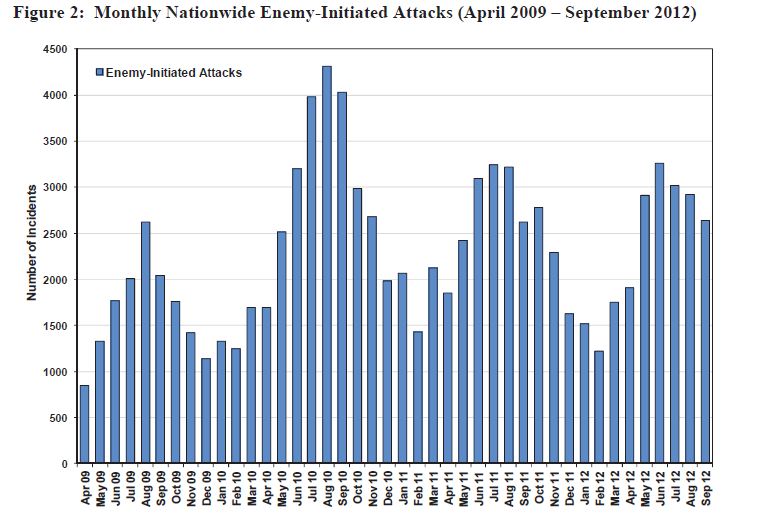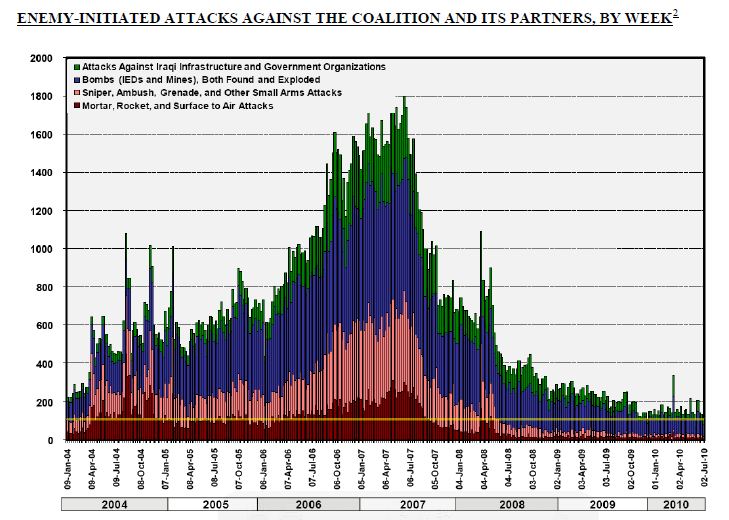British Captain Resigns from Military to Publish Book on Helmand Failures
Today marks the launch in London of a book titled “An Intimate War: An Oral History of the Helmand Conflict, 1978-2012”. The book’s author is Dr. Mike Martin. Until Monday, he was known as Captain Mike Martin. In order to publish the book, however, he resigned from the military when it refused to grant him permission to publish the book, which the military ironically had initially commissioned from Martin.
From the Guardian:
A captain in the Territorial Army has resigned after a dispute with the Ministry of Defence over a book he has written that is critical of the conduct of the campaign in Afghanistan’s Helmand province.
The MoD commissioned the book by Dr Mike Martin, but took exception to parts of the account. The dispute has gone on for more than a year.
In a statement, the MoD said it “has a strong record of learning from previous campaigns and encourages its officers to challenge existing norms and conventional wisdom. However, the publication of books and articles by serving military personnel is governed by well-established policy and regulations. When these are breached, the MoD will withhold approval.”
We get more from BBC:
Mr Martin studied Helmand for six years and completed an Army-funded PhD at King’s College in London.
He told the BBC Nato troops did not understand the “complexities” of Afghan tribal conflicts and were “manipulated” by tribal leaders fighting over land and water.
“This meant that we often made the conflict worse, rather than better,” he wrote in the study.
Mr Martin said he was originally told his final thesis could not be published as a book because it made use of secret cables published by Wikileaks and classified materials.
But for now it looks as though his resignation will make it possible for Martin to go ahead with the book launch:
But he denied the book contained any intelligence material that was not in the public domain.
Last week, he was then told by his commanding officer that he was “not authorised to published the book”.
He resigned on Monday and will launch the book in London on Wednesday night.
The MoD said the department had accepted the material in the book did not contravene the Official Secrets Act.
More information on the book and Martin’s research for it is found in the King’s College announcement for a seminar tomorrow:
An Intimate War tells the story of the last thirty-five years of conflict in Helmand Province, Afghanistan as seen through the eyes of the Helmandis. In theWest, this period is often defined through different lenses—the Soviet intervention, the civil war, the Taliban, and the post-2001 nation-building era. Yet, as experienced by local inhabitants, the Helmand conflict is a perennial one, involving the same individuals, families and groups, and driven by the same arguments over land, water and power.
This book—based on both military and research experience in Helmand and 150 interviews in Pushtu—offers a very different view of Helmand from those in the mainstream. It demonstrates how outsiders have most often misunderstood the ongoing struggle in Helmand and how, in doing so, they have exacerbated the conflict, perpetuated it and made it more violent—precisely the opposite of what was intended when their interventions were launched.
Dr. Mike Martin is a Pushtu speaker who spent almost two years in Helmand as a British army officer (covering Operation HERRICKs 9-16). During that time, he pioneered and developed the British military’s Human Terrain and Cultural Capability—a means to understanding the Helmandi population and influencing it. He also worked as an advisor to several British commanders of Task Force Helmand. His previous publications include A Brief History of Helmand, required reading for British commanders and intelligence staff deploying to the province. He holds a doctorate in War Studies from King’s College London.
Well, at least Martin didn’t have to leak his book to Rolling Stone to get it published. Informing the military of its own mistakes and hubris never seems to go well. As we are seeing now with Mike Martin in the UK and saw previously with Daniel Davis in the US, the military takes active steps to block such publications. And then sometimes it even goes so far as retroactively classifying material that is found to be embarrassing. I hope to get a chance to read Martin’s book. From the description, it sounds as though it may well take a similar cultural approach to the analysis of green on blue killing that lead to the retroactive classification of “A Crisis of Trust and Cultural Incompatibility” (pdf).
Is there any higher heroism than disrupting one’s own career in the spreading of truth?


